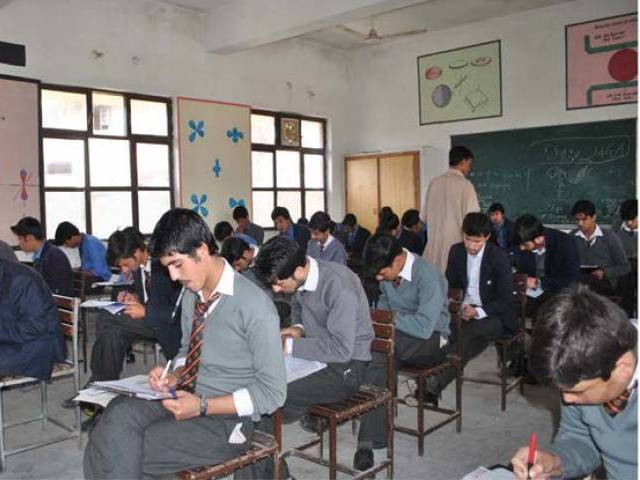Disaster resilience: NDMA develops new guidelines for schools
Measures include training teachers, students to deal with natural calamities

Shaikh added for a country like Pakistan which loses nearly Rs400 billion annually because of disasters, it was inevitable that disaster risk reduction would be included in school curricula to raise awareness among children, teachers and communities. PHOTO: EXPRESS
The guidelines also propose structural changes for existing schools to make them disaster resilient.
“The gender and child cell of the NDMA (NDMA-GCC), with support of Unicef, have developed ground rules which can be used by public and private schools across the country in case of natural and man-made disasters,” National Disaster Management Authority (NDMA) Spokesperson Ahmed Kamal told The Express Tribune.
Proposals
The National School Safety Policy Guidelines (NSSPG) proposes raising awareness about possible disasters, analysing specific vulnerability and hazards of school environment, identifying evacuation routes and safe places, increasing cooperation with communites, conducting practical exercises and conducting mock evacuation drills to enable schools to be prepared to act adequately and save lives in cases of emergencies.
Kamal also said the new safety framework will set up a school-based disaster risk management system across the country on a sustainable basis for training school disaster safety teams and developing a school safety and security plan.
“They [guidelines] will involve structural and non-structural interventions, establishment of a coordination mechanism amongst stakeholders and capacity building,” Kamal said.
Non-structural interventions will comprise orienting students and teachers about natural and man-made disasters. In this regard, pre-disaster measures will be taken to protect schools, rehabilitate people and buildings and train teacher about safety. The plan includes 70 to 75 training programmes whereby three teachers will be trained from each government, private and community-based schools in remote areas. Each training session will consist of around 60 to 70 teachers and the programme is expected to be completed by 2017.
For structural interventions, the guidelines call for measures which will make school buildings more disaster resilient.
The need
School infrastructure worth billions of rupees suffered massive damage in the country over the last decade owing to natural disasters particularly in the 2005 earthquake and floods since 2010.
The disasters damaged some school buildings to such an extent that they had to be abandoned, forcing thousands of schoolchildren, particularly in the rural areas, to take classes under the sky.
While most of the educational institutions damaged during the 2010 floods have been rehabilitated, Kamal said the government lacks necessary funds to rebuild damaged or destroyed schools in a more climate-resilient manner.
Effectiveness
Pointing towards lessons learnt from the 2005 earthquake, Kamal said building codes introduced and adopted in seismic zones after the disaster helped protect schools during the 2015 earthquake in Bajaur Agency.
Ministry of Climate Change Media and Communication Deputy Director Muhammad Saleem Shaikh told The Express Tribune that a school-based disaster risk management system has potential to address the country’s vulnerability to disasters, particularly floods and earthquakes.
“[NDMA’s newly-proposed] School-Based Disaster Risk Management (PSBDRM) framework can help achieve goals of school infrastructure sustainability and safety of schoolchildren,” he said.
Shaikh added for a country like Pakistan which loses nearly Rs400 billion annually because of disasters, it was inevitable that disaster risk reduction would be included in school curricula to raise awareness among children, teachers and communities.
Published in The Express Tribune, October 2nd, 2016.


















COMMENTS
Comments are moderated and generally will be posted if they are on-topic and not abusive.
For more information, please see our Comments FAQ